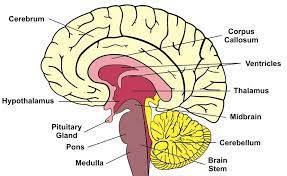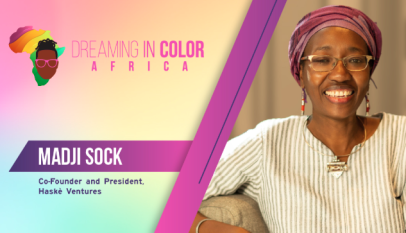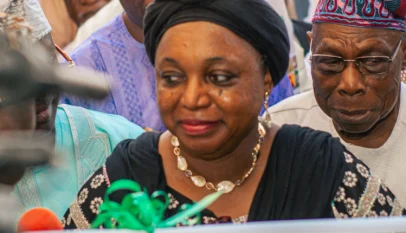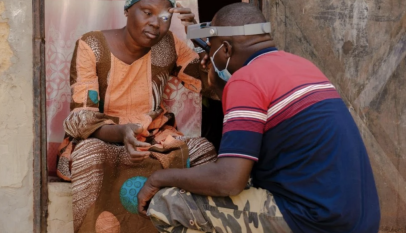The pains of living with memory loss
Dementia, better known as memory loss, leads to psychological impairments like difficulty in communicating and reasoning as well as handling of complex tasks

By Adam Alqali
Although she was already displaying mild symptoms of memory loss, it was after the demise of her eldest daughter over three years ago that seventy-year old Binta Yusuf’s condition worsened to such an extent that she could easily forget something as significant as whether or not she had performed any of her compulsory five daily Islamic prayers.
Born in Bichi town, 50 kilometers northwest of Kano, young Binta was married off to a much older man at about the age of 12 as a second wife. Because of the serious stigma against Western education at the time, particularly for girls, she never went to school. She eventually gave birth to her first daughter (whose demise in 2018 aggravated her forgetfulness) at around the age of 13.
Before she began receiving treatment, Ms Yusuf would often keep her stuff somewhere in her room and after a while begin to ask for the same item – only for the item to be discovered by her caregiver not far away from where she was seated. The grandmother was subsequently diagnosed with an advanced form of dementia.
The septuagenarian who is currently receiving dementia care at the Murtala Muhammed Specialist Hospital (MMSH) in Kano is under the care of her favorite granddaughter, Ms Jidda Abubakar, who assists her in carrying out complex activities.
What is Dementia?
Psychiatry is a branch of medicine focused on the diagnosis, treatment and prevention of mental disorders and other mental health-related conditions. Often due to ageing, the behavioral function of the brain is distorted which is manifested in forgetfulness. “As she continued to advance in age, her condition kept getting worse. At some point, we decided to take her to the hospital and thereafter, we began to witness positive changes in her condition,” Ms Abubakar recalls.
Dr Musbahu Rabiu, a neurologist at MMSH is Ms Yusuf’s doctor. He describes dementia as a serious mental disorder that affects the reasoning capabilities of individuals as well as distressing their memory, thus tampering with their basic functions as human beings. “Dementia manifests in the forgetfulness of vital information peculiar to that individual, making them vulnerable to taking irrational decisions they are unaware of; this is due to the dysfunction caused by memory loss.”
Dr Rabiu describes the late diagnosis and detection of dementia in Nigeria as a major contributing factor to its frequent occurrence in the country and decried the dearth of medical facilities providing care for dementia patients.
While speaking about dementia from a sociological perspective, Prof Nu’uman Habib, a professor of sociology at Bayero University, Kano (BUK) described memory loss as a frustrating condition with adverse effects on individuals and their families, due to constant forgetfulness. “When someone is suffering from dementia, that individual is frustrated because they can’t carry out basic functions of life; consequently, they tend to disconnect themselves from the real world,” Prof Habib explained.
Roots of dementia
The World Health Organization (WHO) describes Alzheimer’s disease as the most common form of dementia which contributes to about 60-70% of dementia cases and is manifested in confusion and forgetfulness. Since dementia is also associated with advancement in age; the progression in Ms Yusuf’s age is definitely a contributing factor to her ailment, even as she had been displaying mild symptoms of forgetfulness for a long time.
“When the symptoms become severe, we will discuss something with her and when we later attempt discussing the same issue with her, she would appear to be totally ignorant of what we were saying and will often say: ‘I can’t remember.’ Sometimes, she would mix up two entirely different conversations which doesn’t not make sense at all. She has a habit of keeping money underneath her pillow but would constantly forget where she kept it. It is that bad!” Ms Abubakar narrates.
Although Dr Rabiu says the major cause of dementia is age-related, he also links the condition to hereditary factors noting that having a strong genetic link with people suffering from memory loss could put individuals at the risk of developing symptoms of the disease.
Isyaku Umar Yarube, a professor of physiology at BUK cum fellow of the African Science Literacy Network (ASLN), says although memory loss and dementia constitute serious socioeconomic burden to the Nigerian society not much has been done by Nigerian scientists in terms of research to understand both diseases and how to manage them.
“In fact, authors generally agree that the burden of cognitive impairment and dementia in Nigeria is poorly understood. There is a lack of comprehensive, nation-wide research to assess the prevalence and impact of cognitive impairment in the country. The burden could be high due to the fact that up to 10.1 % of the population could be suffering from dementia and Alzheimer’s disease. In addition, some common diseases in our environment such as diabetes and stroke have been reported to be associated with or complicated by cognitive impairment,” he said.
The demise of Ms Yusuf’s first daughter was indeed a bitter pill she had to swallow. Her caregiver, Ms Abubakar says her condition grew worse after she was informed of her daughter’s passing after a brief illness. “After the death of her eldest daughter (my own mother) we decided to stop telling her things that could make her sad so as to avoid aggravating her condition.”
Is dementia an old people’s disease?
The fact that older persons tend to suffer from dementia means the public associate the disease with aged people. Notwithstanding, the fact that younger people also do suffer from dementia just as many older individuals continue to effectively carry out their daily life functions through the end of their lives, invalidates the argument that memory loss is a disease of old people.
Dr Mustapha Gudaji, a consultant psychiatrist at the Aminu Kano Teaching Hospital (AKTH), says diseases such as hypertension and diabetes also lead to dementia. “The fact that a high number of individuals suffering from dementia are in their 70s and 80s does not mean dementia is an old people’s disease. This is because there are people who are way past their 70s and 80s but are still able to carry out their normal functions i.e without displaying any symptoms of dementia. On the other hand, there are individuals who are only in their 50s but are already displaying dementia symptoms.”
Umar Mohammed, a clinical psychologist agrees with Dr Gudaji. He believes memory loss also affects both young and old people despite the prevalence of dementia among older people. “Mental illness could affect people of all ages either elderly or young, depending on the magnitude and type of the mental illness. Some are seen more in the elderly while others tend to manifest in younger people; some could manifest in both the younger and older people,” he explains.
Managing dementia
WHO ratifies that dementia has no available cure and there is no means of altering its progressive development in humans. Since various treatments for dementia are at different stages of clinical trials, dementia patients are in need of serious support as they struggle with the fallout of memory loss. Unfortunately, mental health is still not a priority in Nigeria.
Abubakar Bichi, a social worker at the Federal Medical Centre, Azare, in Bauchi state believes individuals suffering from dementia are desirous of support since their thinking and mode of reasoning had been partially altered. He therefore calls on the government to address the factors leading to memory loss as well as establishing mechanisms for providing care to people suffering from dementia so as to reduce the burden on the families of patients.
Psychologist Mohammed says since psychological factors also contribute to the development of dementia, psycho-medical approach is key in the management of memory loss. He therefore believes providing care for dementia patients is a collective responsibility of both healthcare workers and family members of dementia patients, as healthcare workers alone cannot provide psychosocial support to the patients.
“The psychological interventions are based on skilled training of relatives who would manage the dementia patients and meet their needs. Psycho-education to the family of the patient is one of the best approaches for handling patients suffering from dementia at home,” he explains.
In addition, the currently insignificant numbers of psychiatric specialists in Nigeria calls for more psychiatric personnel to be trained so as to bridge the very low number of specialists in this critically-important field of medical practice. It is shockingly unbelievable that there are currently merely about 300 psychiatric doctors all over Nigeria whose population is estimated to be about 200 million. The country must also address brain drain as many qualified psychiatrists continue to migrate out of the country in search of greener pastures.
Adam Alqali is a fellow of the African Science Literacy Network (ASLN). This report was supported by the ASLN.
















